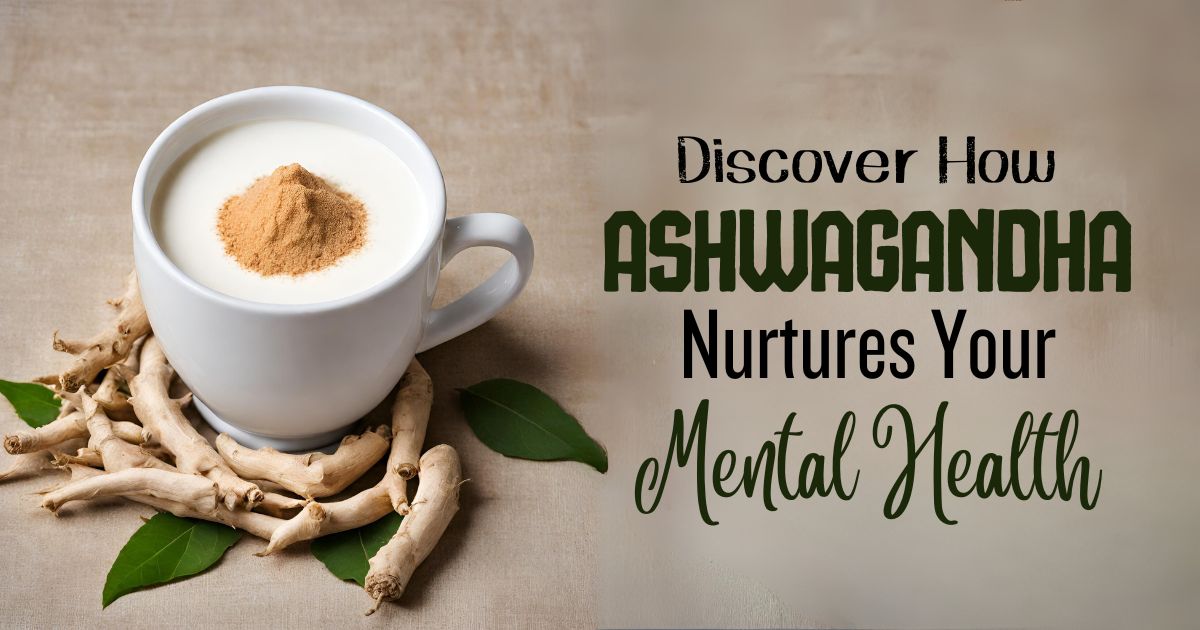In recent years, many people have been in search of complete wellbeing and this has led to the exploration of traditional herbal remedies, with Ashwagandha being among those that are deemed effective in promoting mental health. Rooted deep in Ayurveda—the ancient Indian system of medicine—Ashwagandha is scientifically known as Withania somnifera. It has also earned a name for itself as one of the proponents of mental health.
The Mental Health Benefits Of Ashwagandha
The mental health benefits of Ashwagandha have been attributed to its nature of being an adaptogenic plant that assists the body to adapt to stressors and maintain homeostasis. This adaptogenic property plays a significant role in dealing with stress and anxiety and other associated mental health conditions. The herb is believed by some scientists to modulate cortisol levels in such a way that influences the body’s stress response. By enabling more balanced reactions towards stressful conditions, Ashwagandha contributes to an overall sense of tranquility and wellness.
Additionally, Ashwagandha is thought to possess anxiolytic properties that may be responsible for relieving anxiety symptoms. For example, different investigations revealed that it might have effects on neurotransmitters like gamma-amino-butyric acid (GABA) which calms down brain activity. This potential modulation could lead to reduced anxiety levels and enhanced psychological endurance.
Furthermore, there are claims that Ashwagandha promotes better cognitive function. Studies indicate that this drug may be neuroprotective in supporting brain functions and hence can aid in preventing cognitive decline. Some studies suggest that Ashwagandha’s ability to boost memory and cognition makes it an excellent choice for people need extra brain power.
Is The Use Of Ashwagandha Scientific?
Despite the fact that Ashwagandha has been used traditionally in mental health care, modern science has recently confirmed the mental health benefits of Ashwagandha. Research on Ashwagandha’s influence on stress has shown positive results. The Indian Journal of Psychological Medicine reported that individuals who consumed Ashwagandha had noticeably lower levels of stress compared to a control group. Anxiety and overall well-being had also improved among people taking Ashwagandha, as outlined in the same study.
For example, a double-blind, placebo-controlled study published in the Journal of Clinical Psychopharmacology showed significant reductions in stress and anxiety symptoms among participants suffering from chronic stress after using ashwagandha extract. This is consistent with the mental health benefits of herb’s adaptogenic and anxiolytic properties.
It should be noted that though scientific evidence does support the mental health benefits of Ashwagandha, reactions may differ depending on an individual. Especially for persons who are already sick or receiving medication, it is very important to seek advice from healthcare professionals before adding any supplement into their daily routine.
What Are Some Other Herbs With Mental Health Benefits?
Ashwagandha is not the only herbal remedy associated with mental health benefits. Several other herbs have gained recognition for their potential to support mental well-being, such as:
- Lavender: Lavender has a calm aroma that reduces anxiety and improves sleep patterns. Essential oils like lavender oils are used in aromatherapy for relaxation purposes.
- Ginkgo Biloba: This plant is thought to boost brain function by improving blood flow to the organ. A few studies propose that Ginkgo Biloba might help with memory and concentration.
- Chamomile: Commonly known for its sedative properties, chamomile tea is taken for relaxation and stress relief in most cases. It may also be used in addressing sleep problems.
- Rhodiola Rosea: Like Ashwagandha, Rhodiola Rosea is one of those adaptogenic herbs that help in reducing stress. It improves thinking ability and minimizes tiredness.
Tips For Picking The Appropriate Herbs For A Sound Mind
While thinking about incorporating mental health herbs in your daily routine, approach supplements carefully and with an informed mind. It is also necessary to contact a health professional who will give advice according to your own state of health as well as other individual circumstances like allergies or medication.
Also, users should realize that supplements made from plants are not universal remedies. What helps someone else may not have any effect on another person. Informed choice would mean we know the peculiarities of our mental well-being along with possible sensitivities.
Among herbal plants, Ashwagandha stands out for its ability to influence mental health. This property warrants acknowledgement in traditional beliefs as well as scientific understanding. Considering the growing interest in holistic approaches toward mental well-being, individuals must take mindful steps towards herbal supplementation under professional guidance that prioritize their overall wellness.




























